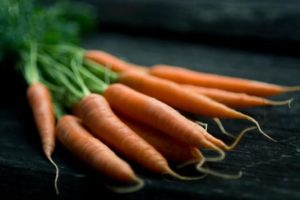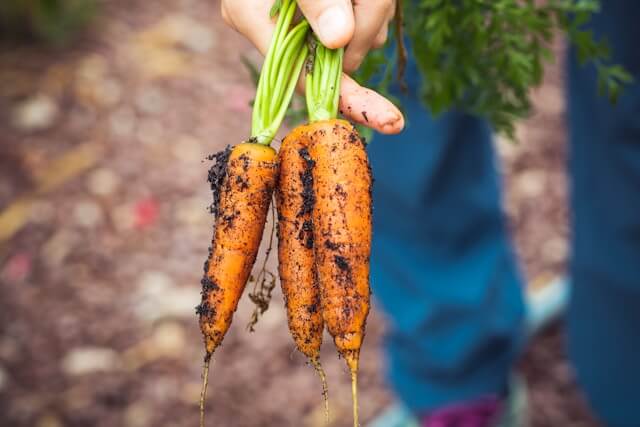Imagine going to your local grocery store and finding the produce section empty of carrots. No vibrant orange roots waiting to be transformed into a delicious carrot cake or a nutrient-rich juice. This scenario is not a fantasy, as the world is grappling with a carrot shortage. But what exactly is causing this shortage and why should you care? This blog post will delve into these questions and explore the unseen impact of the carrot shortage.
About Carrot
Carrots, scientifically known as Daucus carota, are a root vegetable typically recognized by their bright orange color. But they also come in other hues like purple, red, white, and yellow.
Carrots are not just visually appealing, they are also packed with nutrients such as beta-carotene, fiber, vitamin K, potassium, and antioxidants.These nutrients give carrots their superfood status and make them a key ingredient in many recipes. However, this staple item in our diet is experiencing a shortage.
Is There a Carrot Shortage?
Yes, there is indeed a carrot shortage. The world is facing a significant decrease in carrot production. Farmers and suppliers are struggling to meet the demand, leading to empty grocery store shelves and increasing prices.
The carrot shortage is not a localized issue; it’s a global problem affecting various countries, including the United States, the United Kingdom, and Canada. But what’s causing this shortage?

Reason For Carrot Shortage
The carrot shortage can be attributed to several factors. The primary reason is the erratic weather patterns caused by climate change. Unpredictable weather conditions like droughts, heatwaves, and heavy rainfall can damage crops and reduce harvest yields.
Another factor is labor shortages. The COVID-19 pandemic has disrupted labor forces, making it difficult for farmers to plant and harvest their crops. The increased cost of production, combined with reduced yields, has led to a scarcity of carrots in the market.
Related Article:
Try Other Options
There are many alternatives for carrots, depending on what you’re using them for. Here are a few good options:
1. Parsnips
These root vegetables look like white carrots and have a similar flavor that’s slightly sweeter and nuttier. They can be used in most of the same ways as carrots, such as roasting, stir-frying, and adding to soups and stews.
2. Sweet Potatoes
Sweet potatoes are a great source of beta-carotene, like carrots, but they have a sweeter flavor. They can be roasted, mashed, or used in baked goods
3. Rutabaga and Turnips
These root vegetables have a more pungent flavor than carrots, but they can be used in similar ways.
4. Daikon Radish
Daikon radish is a long, white radish with a milder flavor than other radishes. It can be used raw in salads or cooked in stir-fries and soups.
5. Jicama
Jicama is a root vegetable that has a crisp, water chestnut-like texture and a mild, sweet flavor. It can be used raw in salads or slaws, or cooked in stir-fries.
Impact of the Carrot Shortage On Grocery Stores
The carrot shortage has a significant impact on grocery stores. As one of the most popular vegetables, carrots are a staple in the produce section. The shortage means that grocery stores are not able to stock their shelves adequately, leading to disappointed customers and potential loss of sales.
The scarcity also drives up the price of carrots, making them less affordable for many shoppers. Grocery stores are scrambling to find alternative suppliers, but the widespread nature of the shortage makes this a challenging task.
Challenges Faced by Carrots
Carrots face multiple challenges that contribute to their shortage. Apart from weather conditions and labor shortages, carrots are also susceptible to diseases and pests. Diseases like carrot blight and pests like carrot fly can significantly reduce yield.
Additionally, the long growing cycle of carrots (around 2-3 months from sowing to harvest) means that any disruption during this period can impact the final harvest. These challenges, combined with the impact of climate change and labor issues, make it difficult to maintain a steady supply of carrots.
Social Media Response from Customers
As word of the carrot shortage spread, social media platforms became a hotbed of reactions. From disbelief to humor, emotions ran high among netizens. #CarrotShortage became a trending hashtag, and memes flooded Twitter and Instagram.
Yet, beneath the jests lay genuine concern. People were worried about their favorite recipes, their health, and, above all, the impact on farmers whose livelihood depended on this crop. This collective concern underscores the importance of the carrot, a vegetable we often take for granted.
Can I Still Buy a Carrot?
One of the first questions after hearing about the carrot shortage is, naturally, “Can I still buy a carrot?” The answer, thankfully, is yes. Although the shortage is real, it does not mean that carrots have vanished from the market entirely.
However, due to decreased supply, prices may rise, and quality may vary. Consumers are advised to be patient, flexible, and open to trying other vegetables in their diets during this period.
The Importance of Carrot in Our Daily Lives
The carrot shortage has highlighted the importance of this vegetable in our daily lives. Carrots are more than just a staple food item. They are rich in vitamins and minerals that contribute to our overall health. From improving vision to boosting immunity, the benefits of carrots are numerous.
Furthermore, they are a versatile ingredient in various dishes, making them a favorite among chefs and home cooks alike. The shortage has underscored our dependence on this humble vegetable and spurred discussions on food security and sustainability.
When Will the Carrot Shortage End?
As for the question on everyone’s lips, “When will the carrot shortage end?” – the answer is uncertain. The shortage is due to a combination of factors, including unfavorable weather conditions and increased demand.
However, agricultural experts are working tirelessly to resolve the issue, and there is hope that the situation will stabilize soon. In the meantime, consumers are encouraged to support local farmers and diversify their diets.
Conclusion
The carrot shortage is a multifaceted issue with far-reaching impacts. It’s not just about missing out on your favorite carrot cake or juice; it highlights deeper issues related to climate change, labor shortages, and the sustainability of our food systems.
As consumers, we can play our part by supporting local farmers, reducing food waste, and promoting sustainable farming practices. While it may not solve the carrot shortage overnight, it’s a step in the right direction towards a more sustainable future.
FAQs – Carrot Shortage
Is There a Carrot Shortage Right Now?
There is currently widespread information about a global carrot shortage. Produce availability can vary depending on location and season, so it’s always a good idea to check with your local grocer.
Are There Any Health Benefits to Carrots?
Carrots are a good source of vitamins and minerals, including beta-carotene, which your body converts to vitamin A. Vitamin A is important for vision and overall health.
What are Some Interesting Facts About Carrots?
Carrots come in a variety of colors, including purple, yellow, and even black
How Can I Stay Informed About Potential Carrot Shortages?
News outlets and agricultural websites are good sources for information on potential food shortages.

